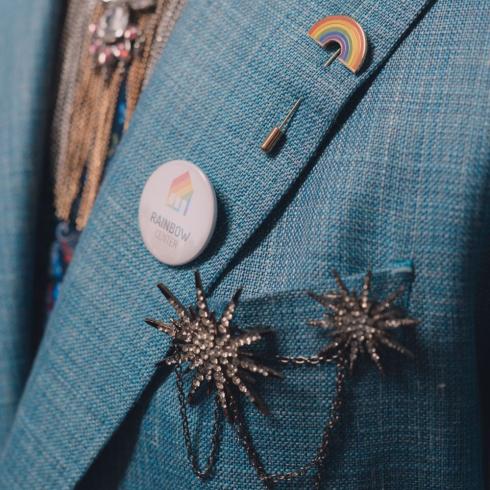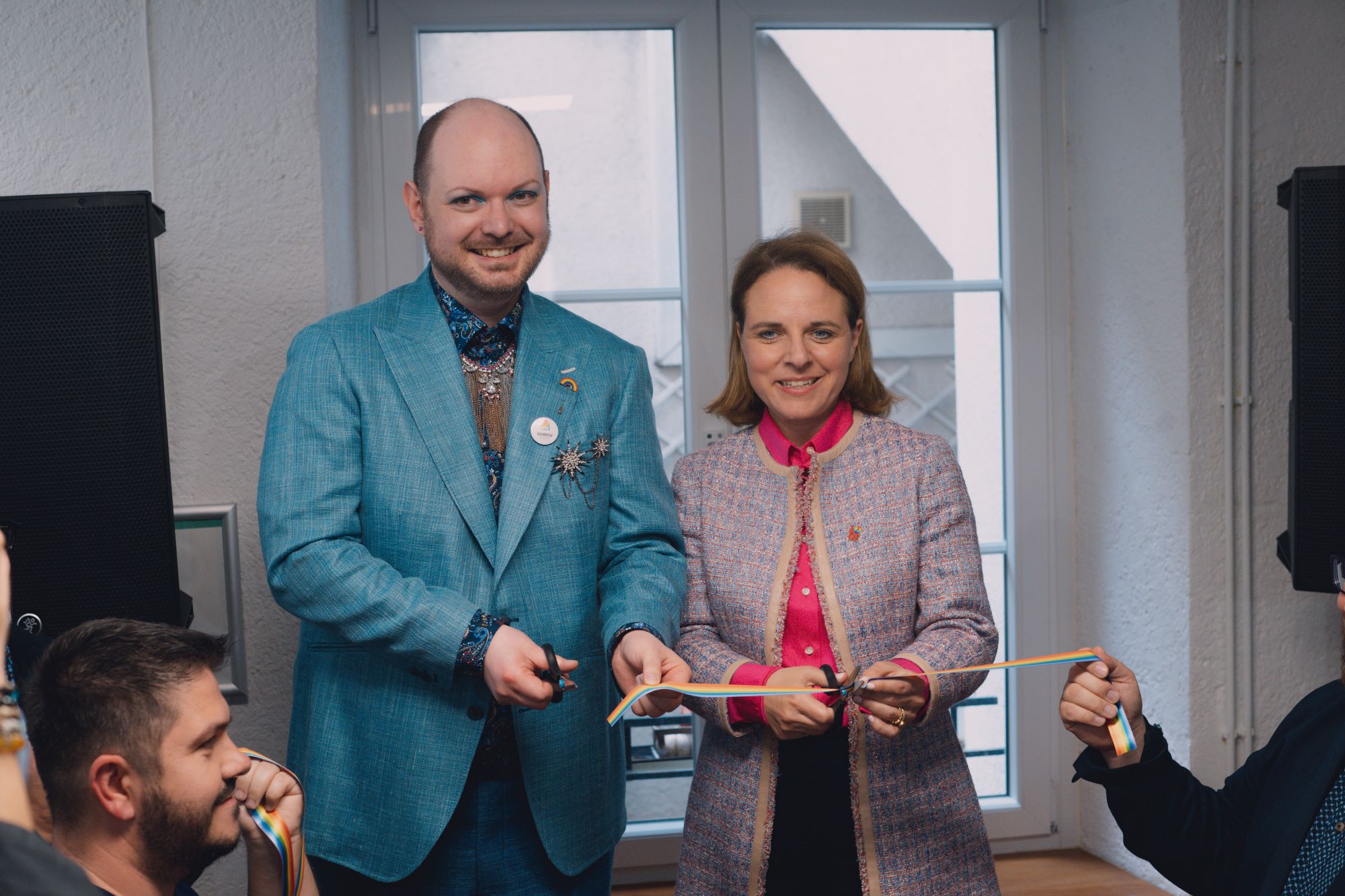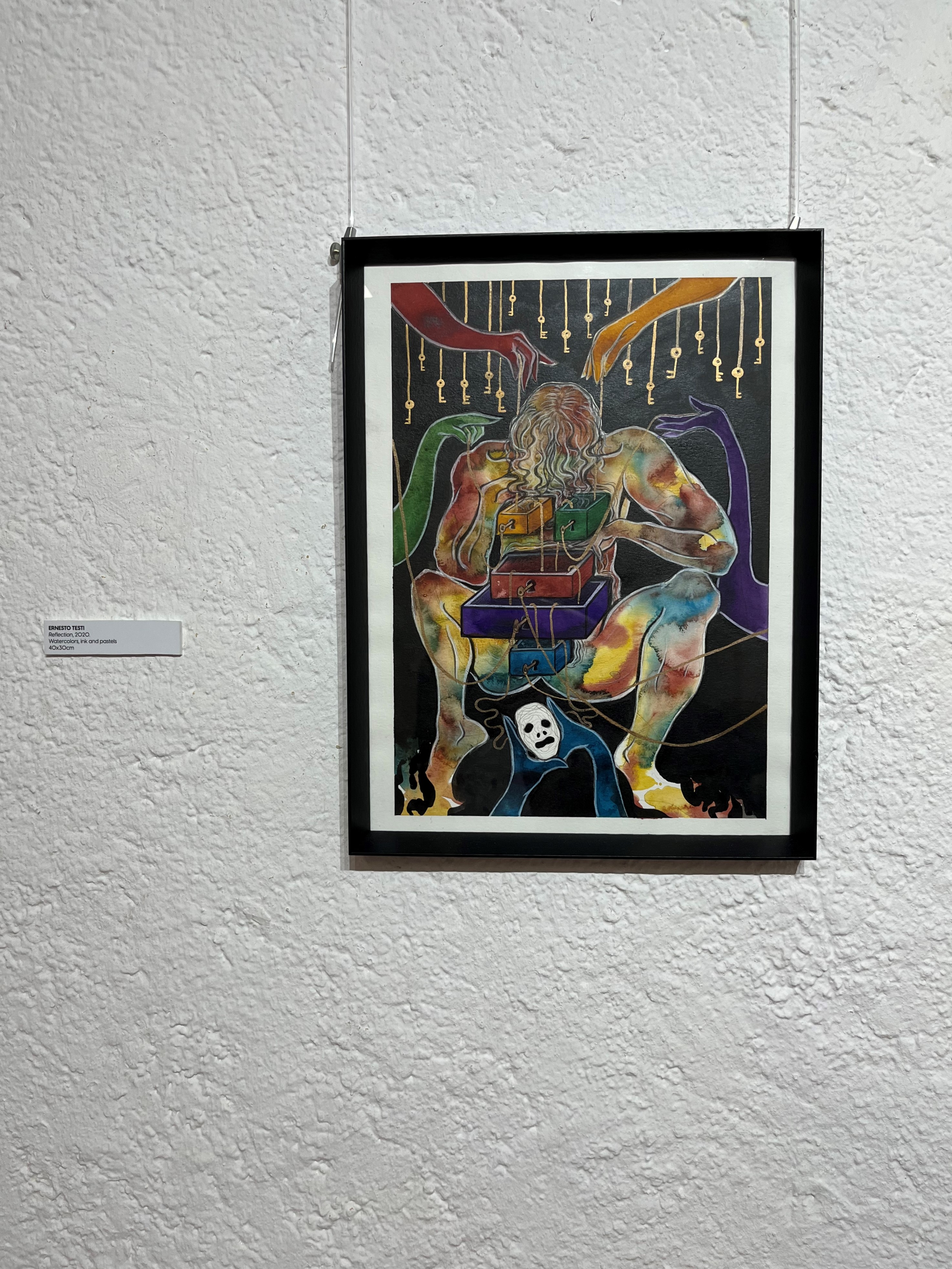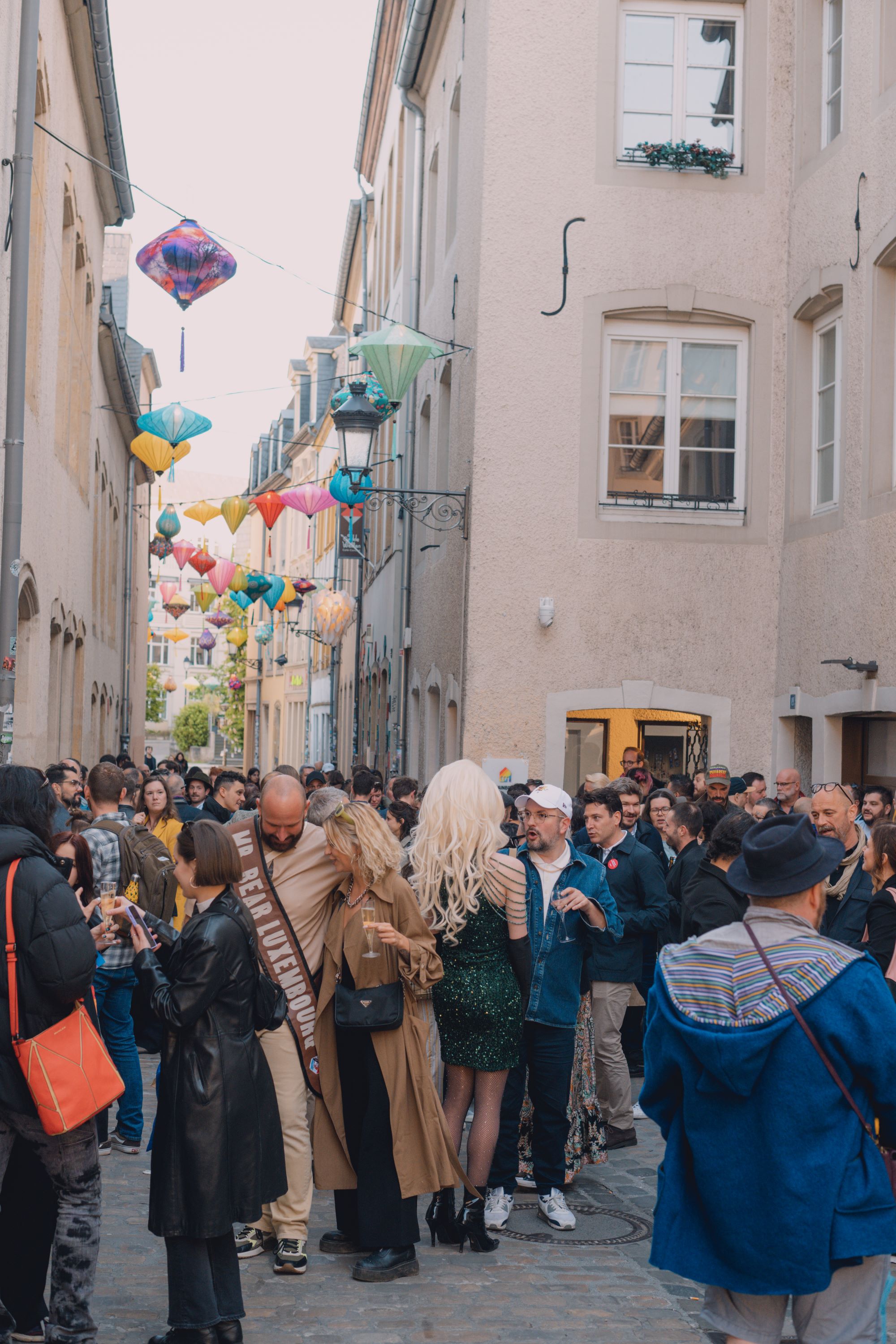09 juin. 2023Rainbow Center

A place free from judgments and mean looks, a shelter for people who at times feel vulnerable, who are in search of a space where they can freely express themselves. Since the 17th May 2023, the Rainbow Center provides such a space for the LGBTIQ+ community in Luxembourg.
Although we have an openly gay prime minister and have reached a wider acceptance for people of the queer community in the broader society, there is often times still a taboo regarding deviations from heteronormative behaviour or thinking. Also, people from the queer community today still face discrimination in many areas.
The newly installed Rainbow Center is supposed to be a meeting place for the queer community and its allies, as states Kusaï Kedri, project manager at the centre, which was founded on the initiative of Rosa Lëtzebuerg a.s.b.l., the oldest association representing the interests of LGBTIQ+ people in Luxembourg. By doing that, Kusaï and his colleagues Sandra Laborier and Luce van den Bossche hope to establish the centre as a safe space to all visitors.

The inauguration of the Rainbow Center was accompanied by an exhibition treating the theme of safe space from an artistic point of view. Ten artists, some queer, some allied, took part in the exhibition and showed different visions of safe spaces. Not only do their ideas of the latter differ from each other but also their forms of artistic expression.
We have for example Damir Prljaca, who displays a photograph of a woman with a big scar on her lower back, which really captured the eyes of visitors during the inauguration, as Kusaï told me. In contemplating the piece, viewers enter the very private sphere of the person they look at. In doing so their senses might sharpen for the safe space as a precondition for displaying vulnerability, for showing your scars, your suffering, maybe your shame as well, and to overcome the latter in the process.
For the Californian artist Amanda Weinstein on the other hand, knitting is her safe space. Here comes into play the notion of retreat. By seeking shelter in one’s own realm, a place where we exert control, where nothing can harm us, where we can do what we love, we are able to build our own safe spaces. On the opening of the exhibition, we saw her doing a one-and-a-half-hour performance, where she was sitting and knitting in a delimited space in the middle of the crowd attending the inauguration.
Ernesto Testi, an art student, put his vision of safe space into a water coloured painting. We see a naked person in a cowering position having various drawers of himself being opened and visually sticking out of his body. Again, it’s the idea of vulnerability, of opening oneself up and exhibiting one’s inner self. In a certain way, ironically, the very act of exhibiting the art at display in the exhibition demands a safe space of its own, which happens to be the core idea of the exhibition itself and the house hosting it.

What’s remarkable is that, for Kusaï, a safe space is universal, because “what it is for an LGBTIQ+ person, ends up being exactly the same notion as for anyone else.” This common ground opens up the exhibition and the Rainbow Center as a whole for folks outside the queer community, too. With the Rainbow Center the queer community in Luxembourg finally gained an exhibition venue, where queer artists find a dedicated non-commercial space to display their art in a safe space.
“We want people to think about the Rainbow Center as a recreational place, a social place, and also a place where I can get information on LGBTIQ+ related topics.”
The Rainbow Center is part of a complementary system of different actors who provide assistance with queer-related needs. While other institutions like CIGALE offer professional counselling and have a more discrete, anonymous approach in order to allow everyone in need to step forward in search of support, the Rainbow Center is all about visibility. It is located in the very centre of Luxembourg (City) and is conceived as a platform, where people from the community and their allies can meet and connect.
Since they moved into the ground floor of 19 Rue du St. Esprit in February, the team in charge works eagerly on arranging not only the current exhibition but also organizing 12 workshops alone in this year, which for now take place in De Gudde Wëllen, the bar next door. In the near future however, they will place some sofas and a coffee machine in the foyer, where they plan on hosting said workshops as well as movie nights and panel discussions. In between events, the space will serve as a casual meeting place, where people can drop by at any time for a chat and a coffee.
While the social, recreational and cultural aspects of the Rainbow Center are at the heart of its activity, it goes hand in hand with the educational work they do in high schools and universities. In the form of awareness trainings, they create honest debates with children and adolescents in order to “help get rid of lots of these stigmas and misconceptions surrounding the LGBTIQ+ community.” The aim is, as Kusaï puts it, to get a foot in the door, to help them grow up with the idea “that we live in a world where there are many varieties, where truth isn't black and white, where there are many truths and many identities we need to accept in order to evolve and to achieve an egalitarian society.”
“We're lucky to have a prime minister who's LGBTIQ+ but we want also that the laws reflect that reality that other countries rank better than Luxembourg in the Rainbow Europe Index 2023.”
There is still a lot of work yet to be done in terms of LGBTIQ+ rights. This shows the Rainbow Europe Index 2023, published by ILGA Europe, an international NGO and umbrella institution uniting over 700 LGBTIQ+ organizations from across Europa and Central Asia. Although, following the report, Luxembourg in terms of queer rights is in the forefront in comparison to other European countries, according to Rosa Lëtzebuerg, the legislation still lacks in some major fields. Kusaï and Luce point out, that there are for example no laws in Luxembourg prohibiting conversion therapy, which refers to an atrocious practice of attempting to forcefully change the sexual orientation of a person against their natural tendencies, and intersex genital mutilations, id est medical interventions to – again – forcefully ‘correct’ the reproductive systems of children with non-binary sexual characteristics.
Therefore, it is crucial to create a sensitivity for queer-related topics in the broader society and politics to achieve in the process a more open-minded, accepting culture in Luxembourg. While for Kusaï educating the youth is an important motor in that regard, it contributes furthermore to community building, for which the Rainbow Center provides the space. Already the latter is a huge milestone for queer people in Luxembourg, the vision for the next step though is clear: We need a Rainbow House, an actual house with many rooms, that would make it possible to offer catering and accommodation to LGBTIQ+ people. “It would give us much more opportunities to really fulfil the plans we have in store,” Kusaï says.

After the last queer bar in Luxembourg closed a month ago, the need for a place like the Rainbow Center is bigger than ever. As a newly installed hub for the queer community in the heart of Luxembourg, it not only fills a gap in establishing a meeting place for LGBTIQ+ people and their allies, but also in providing a cultural space, where queer artists and queer art find a new home.
The current exhibition Safe Spaces can be visited until June 22nd and the second exhibition, that launches a few days after, is already in the making. It will be dedicated to illustration art made by queer artists. Although the art form is fixed, the theme of the exhibition isn’t. “We give the artists carte blanche as to how they want to conceive that exhibition. We do not want to limit their scopes.” The upcoming exhibition will be part of the Luxembourg Pride program launched by Rosa Lëtzebuerg and goes along with a whole range of activities that will take place from 1st to 9th July 2023 in Luxembourg City and Esch-sur-Alzette.
Les plus populaires
- 26 juin. 2024
- 28 juin. 2024
- 05 juil. 2024
- 04 juil. 2024
ARTICLES
Videos
26 juil. 2024TAPAGE avec Ruth Lorang
Articles
22 juil. 2024Le fabuleux destin de Raphael Tanios
Videos
19 juil. 2024

